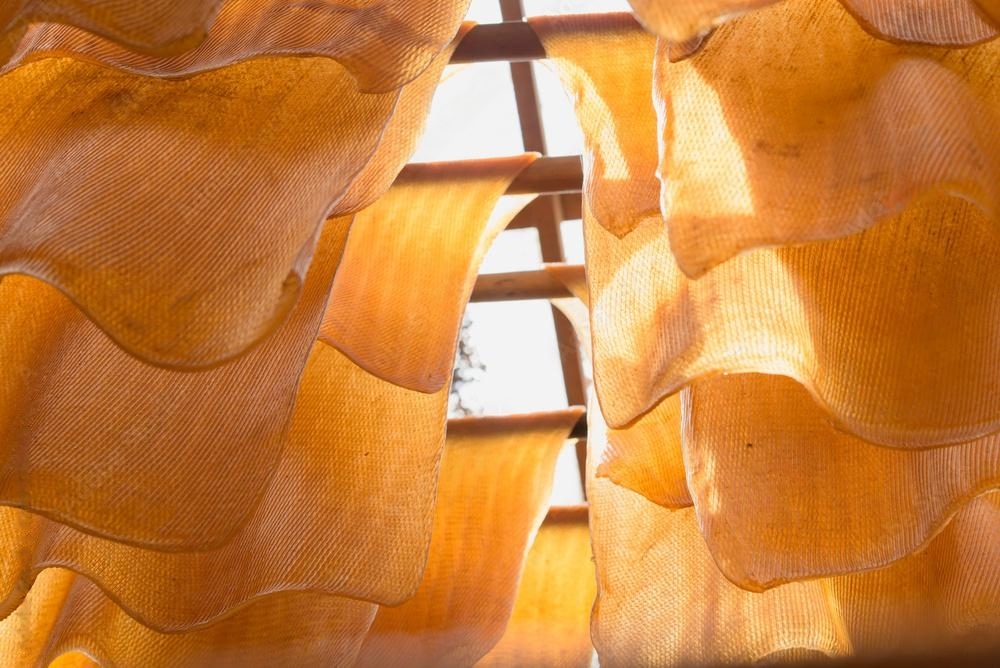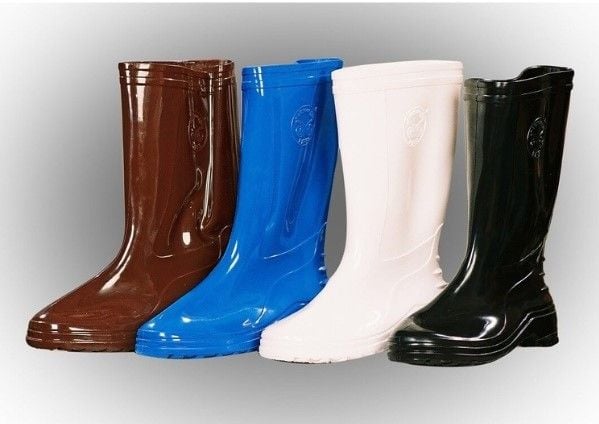Contents
RSS3 rubber is one of the most widely used grades of natural rubber, recognized for its strength, elasticity, and durability. At Ngoc Chau Natural Rubber, we supply premium-quality RSS3 that meets international standards, serving as a vital raw material for multiple industries worldwide.
Its applications are significant and diverse: the tire industry relies on RSS3 for cars, trucks, and motorcycles; the industrial sector uses it in products like hoses, belts, and seals; while the footwear and consumer goods markets apply it in shoe soles and durable household items. Thanks to its high tensile strength, abrasion resistance, and long service life, RSS3 natural rubber has become a trusted choice for manufacturers seeking reliable performance in demanding environments.
Key Properties of RSS3
Durability & Resilience
RSS3 is well-known for its excellent durability and resilience, allowing manufacturers to produce rubber products that maintain their performance over time, even under continuous stress and harsh working conditions.
High Strength
With high tensile strength and strong abrasion resistance, RSS3 plays a vital role in ensuring the safety and reliability of tires, as well as other industrial applications that demand consistent quality and endurance.
Versatility
Thanks to its balanced mechanical properties, RSS3 can be applied across a wide range of industries — from heavy-duty products like hoses, belts, and seals to everyday consumer goods such as shoe soles and household rubber items.
Cost-Effectiveness
As a commercial-grade natural rubber, RSS3 provides a cost-effective solution for large-scale manufacturing. Compared to premium grades like RSS1, it offers an economical balance of performance and affordability, making it a popular choice in mass production.
Why RSS3 Rubber is in Demand
The demand for RSS3 natural rubber is not confined to a single period — it is fueled by the ongoing and evolving needs of global industries. Its balance of performance, durability, and cost-effectiveness makes it indispensable in multiple sectors.
Automotive Sector
The automotive industry is the largest consumer of RSS3. Its ability to withstand heavy stress, fluctuating temperatures, and constant wear and tear makes it ideal for producing tires and other vehicle components.
General Manufacturing
In general manufacturing, RSS3 is highly valued for its reliability and consistent quality. The material’s durability supports large-scale, mass production of rubber products, ensuring manufacturers can meet global demand efficiently.
Applications of RSS3 Rubber
Tire Manufacturing
Vehicle Tires
RSS3 is a core material for the treads and carcasses of passenger, truck, and off-road vehicle tires, ensuring safety, performance, and longevity on the road.
Tubes
It is also widely used in the production of rubber tubes, providing flexibility and durability under varying conditions.
Industrial Products
Seals and Gaskets
Thanks to its resistance to oil, heat, and pressure, RSS3 is an excellent choice for engine gaskets and seals, preventing leaks and maintaining system integrity.
Conveyor Belts and Hoses
RSS3 provides the stability and resilience needed for demanding industrial environments, making it an ideal material for hoses and conveyor belts.
Shock Absorbers
Its durability and resilience are also utilized in the manufacturing of shock absorbers, helping absorb impacts and extend product life.
Footwear & Consumer Goods
Durable Soles
RSS3 enhances the flexibility, elasticity, and water resistance of shoe soles, ensuring long-lasting and reliable footwear performance.
Other Consumer Products
Beyond footwear, RSS3 is also used in a variety of everyday consumer products that require flexibility, durability, and consistent quality.
Environmental Benefits of RSS3 Rubber
Renewable & Biodegradable
RSS3 natural rubber is derived from rubber trees, making it a renewable resource. Unlike synthetic rubbers, it is biodegradable and leaves no harmful residues in the environment.
Lower Carbon Footprint
The production of natural rubber generally requires less energy and fewer chemical inputs compared to synthetic rubber, resulting in a smaller carbon footprint.
Market Challenges & Opportunities of RSS3 rubber
While the outlook for RSS3 rubber remains positive, the RSS3 rubber market challenges also bring new opportunities for growth and innovation. With increasing global demand, suppliers must adapt through supply chain resilience and sustainable sourcing in RSS3 to stay competitive.
Supply Volatility
Extreme weather can affect yields and prices, but this volatility also drives greater investment in resilient farming practices and the development of sustainable supply chains.
Regulatory Compliance
The EU Deforestation Regulation (EUDR) raises strict requirements for traceability. Although this presents challenges, it also rewards suppliers that adopt transparent and sustainable sourcing practices.
Competition & Geopolitical Factors
Rising competition from producers in the CLMV region, along with geopolitical tensions impacting oil prices, may reshape market dynamics. These factors, however, can indirectly strengthen the competitiveness of natural rubber compared to synthetic alternatives.
Ngoc Chau Natural Rubber actively adapts to these challenges, ensuring a stable and sustainable RSS3 supply for global buyers.
Frequently Asked Questions (RSS3 Rubber FAQ)
Q1. What is RSS3 natural rubber?
RSS3 (Ribbed Smoked Sheet 3) is a commercial-grade natural rubber used widely in tires, industrial products, footwear, and consumer goods.
Q2. What are the main applications of RSS3?
RSS3 natural rubber applications include tires & tubes, industrial products (seals, belts, hoses), and footwear like durable soles.
Q3. Why is RSS3 rubber in continuous demand?
The automotive sector drives most demand for tires, while general manufacturing relies on it for durable and cost-effective products.
Q4. Is RSS3 environmentally sustainable?
Yes. It is renewable, biodegradable, and has a lower carbon footprint than synthetics, though sustainability depends on responsible farming and traceability.
Q5. What challenges and opportunities exist in the RSS3 market?
Challenges include weather, competition, and EUDR compliance, while opportunities lie in supply chain resilience and sustainable sourcing.
Conclusion
RSS3 natural rubber continues to be a vital material for global industries, thanks to its strength, durability, and cost-effectiveness. From tires and industrial products to footwear and consumer goods, its applications demonstrate why RSS3 remains indispensable in manufacturing worldwide. At the same time, challenges such as supply volatility, competition, and EUDR compliance are shaping new opportunities for sustainability and supply chain resilience.
At Ngoc Chau Natural Rubber, we supply premium-quality RSS3 that meets international standards, backed by a commitment to stable, sustainable, and transparent sourcing. As a trusted partner from Vietnam, we ensure global manufacturers receive consistent quality and reliable supply.
📩 Contact us today to request samples, specifications, or pricing.
WhatsApp: +84 90 284 60 87 | Email: info@ngocchausupplier.com | 🌐 ngocchausupplier.com












 Ms Evan
Ms Evan